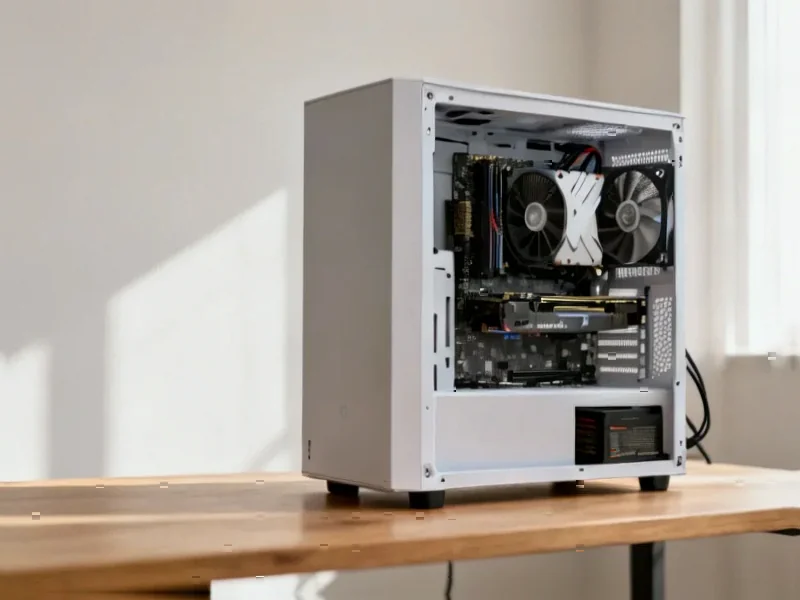According to Business Insider, nineteen-year-old Mathieu Rihet and eighteen-year-old Georges Casassovici dropped out of school after being accepted into Y Combinator’s Spring 2025 class to build Novoflow, an AI startup focused on medical clinic automation. The company just raised $3.1 million in funding led by super angel Justin Hamilton, with participation from N1 Ventures, Multifaceted Capital, and Standard Partners Fund. Rihet’s inspiration came from his experience as a medical translator and his diagnosis with essential tremors, which shifted his career path from cardiothoracic surgery to entrepreneurship. The founders, who met for the first time this year in San Francisco, are building AI that automates tasks and integrates disparate electronic health records systems, starting with cancellation recovery and appointment booking. Their vision extends to eventually replacing the entire operational scope of medical clinics.
The EHR Integration Nightmare
What Novoflow’s pitch deck likely doesn’t emphasize enough is the monumental challenge of integrating with electronic health record systems. The healthcare technology landscape is notoriously fragmented, with major players like Epic Systems and Cerner dominating different segments of the market. Each implementation is heavily customized for individual healthcare providers, creating thousands of unique configurations. Even established healthcare technology companies with decades of experience struggle with reliable, scalable integrations. The technical complexity is compounded by stringent HIPAA compliance requirements and the critical nature of healthcare data – a single integration error could have life-or-death consequences rather than just technical downtime.
The Youth Advantage That Cuts Both Ways
While young founders bring fresh perspectives and digital native advantages, healthcare is an industry where credibility and domain expertise matter tremendously. Medical professionals, particularly those managing clinic operations, tend to be skeptical of technology solutions from inexperienced teams. The average healthcare administrator has seen countless technology promises fail to deliver, and they’re particularly wary of solutions from founders who’ve never managed a medical practice or understood the nuanced workflows of clinical operations. This credibility gap becomes even more pronounced when selling to larger healthcare systems where procurement cycles involve multiple stakeholders including clinical staff, IT departments, and compliance officers.
Navigating Healthcare’s Regulatory Minefield
The founders’ ambitious vision to replace “the entire operational scope of medical clinics” immediately raises red flags about regulatory understanding. Healthcare operations involve navigating complex regulatory frameworks including HIPAA for data privacy, Stark Law for referral relationships, and various state-specific medical practice acts. HIPAA compliance alone requires sophisticated security protocols, business associate agreements, and audit trails that many young technology companies underestimate. The moment Novoflow touches billing or prescription fulfillment as mentioned in their vision, they enter heavily regulated territory where mistakes can result in massive fines and permanent exclusion from the healthcare market.
Market Timing Versus Market Readiness
There’s no question that AI in healthcare represents a massive opportunity, with the global healthcare AI market projected to reach significant growth in coming years. However, the specific application of AI for clinic operations faces unique adoption challenges. Medical practices are notoriously slow to adopt new operational technologies, often preferring familiar, albeit inefficient, manual processes over unproven automation. The sales cycles are long, implementation requires significant customization, and the cost of failure is high when dealing with patient care. While the founders identified real pain points from Rihet’s medical translation experience, translating those insights into scalable technology that healthcare providers will actually trust and pay for represents an entirely different challenge.
$3.1 Million: Fuel or False Confidence?
The substantial funding round led by prominent investors creates both opportunity and pressure. While $3.1 million provides runway to hire engineers and sales staff as planned, it also sets high expectations for rapid growth in an industry known for slow adoption. The healthcare technology graveyard is filled with well-funded startups that underestimated the complexity of selling to medical providers. The funding environment for AI startups is currently favorable, but investor patience may wear thin when faced with the reality of healthcare’s long sales cycles and implementation challenges. The true test will come when Novoflow moves beyond early adopters and attempts to scale across different types of medical practices with varying workflows and technology stacks.
The Co-founder Dynamic: Strength or Liability?
The fact that Rihet and Casassovici met for the first time this year in San Francisco after virtual collaboration raises questions about founder stability under pressure. Building a company is intensely stressful, and healthcare technology adds regulatory, technical, and market pressures that test even the most established teams. The founders’ youth and recent partnership could either prove to be an advantage of fresh thinking or a liability when facing the inevitable challenges of healthcare technology entrepreneurship. Their ability to navigate conflicts, make difficult pivots, and maintain alignment during stressful periods remains unproven, and investor confidence in this dynamic represents a significant bet on potential rather than demonstrated teamwork.




